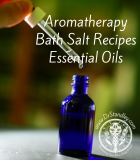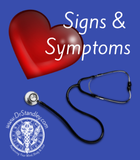
|

|
| Bach Flower Remedies |
Amino Acids A-Z |
Antioxidants A-Z |
Herbs A-Z |
Herbal Preps |
Minerals A-Z |
Vitamins A-Z |
|
|
 |
|
ROSEMARY (Rosmarinus officinalis)
DESCRIPTION: An herb that grows as a shrub that looks like it has miniature evergreen leaves that are 1 inch long and dark green. The odour is pungent and aromatic. The flowers are small and pale blue. Rosemary contains a number of phytochemicals, including rosmarinic acid, camphor, caffeic acid, ursolic acid, betulinic acid, and the antioxidants carnosic acid and carnosol. POTENTIAL BENEFITS: Used to aid in digestion including heartburn, intestinal gas, liver and gallbladder complaints and loss of appetite. Also used for gout, cough, headaches, high blood pressure and age related memory loss. Used topically to the skin to prevent and treat baldness, treat circulation problems, toothaches, eczema, and joint or muscle pain like myalgia, sciatica, and intercostal neuralgia. Also use in wound healing, therapy bath and insect bites. POTENTIAL SIDE EFFECTS: Rosemary is safe when consumed as food and when used as a medicine taken by mouth, skin or inhaled. Undiluted rosemary oil is unsafe if taken by mouth. Taking large amounts of rosemary can cause vomiting, uterine bleeding, kidney irritation, increased sensitivity to sun, skin redness and allergic reactions. PARTS USED: Flowering tops, stems and leaves are used for distilling the oil. GENERAL USAGE: Tonic, astringent, diaphoretic, stimulant. DISCLAIMER **This web site's goal is to provide you with information that may be useful in attaining optimal health. Nothing in it is meant as a prescription or as medical advice. You should check with your physician before implementing any changes in your exercise or lifestyle habits, especially if you have physical problems or are taking medications of any kind. |
| 314.420.5099 |
| Questions regarding this site: webmaster@drstandley.com |
| Copyright 1999-2026: Dr. Loretta J. Standley - All Rights Reserved. |































